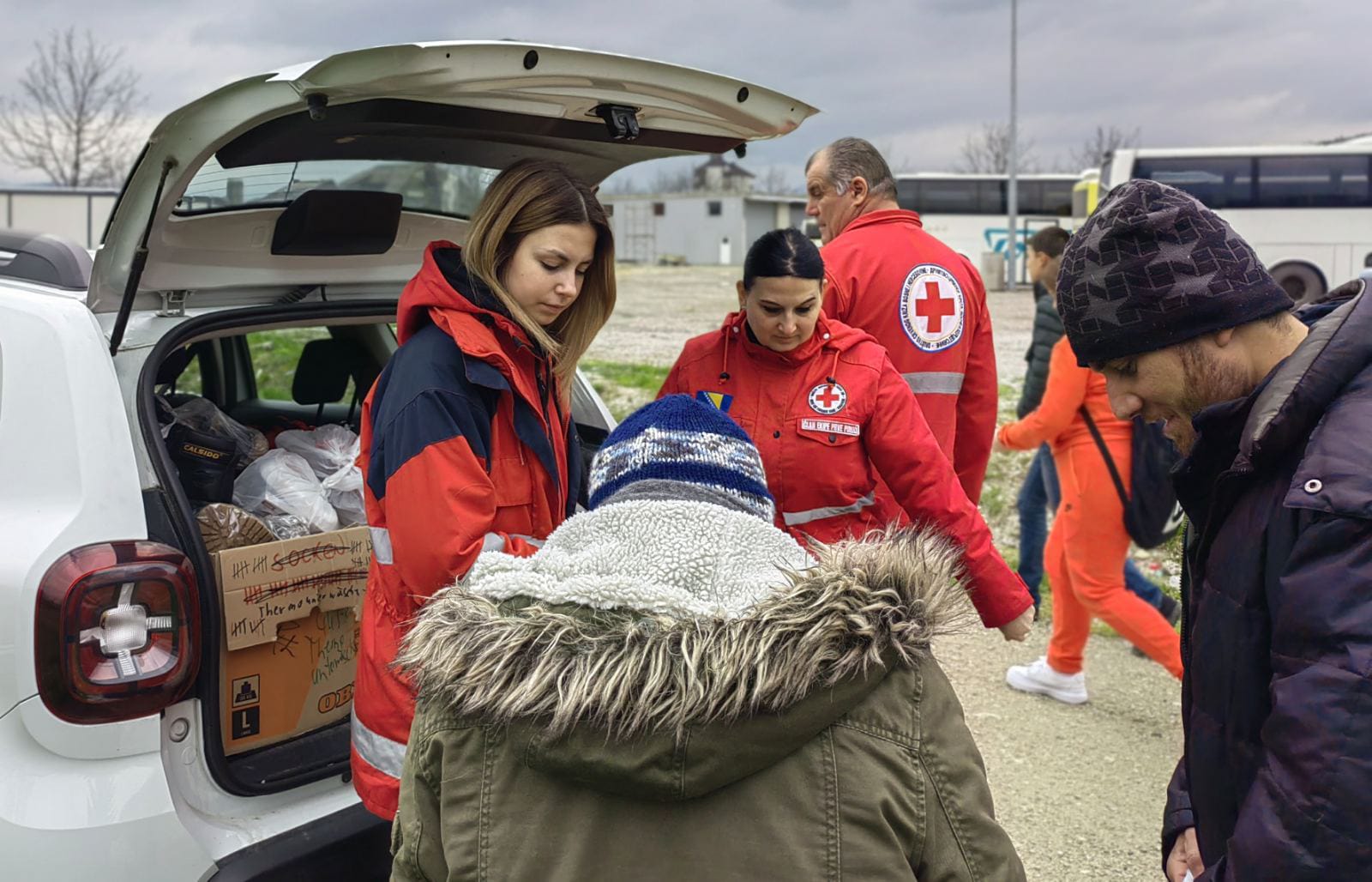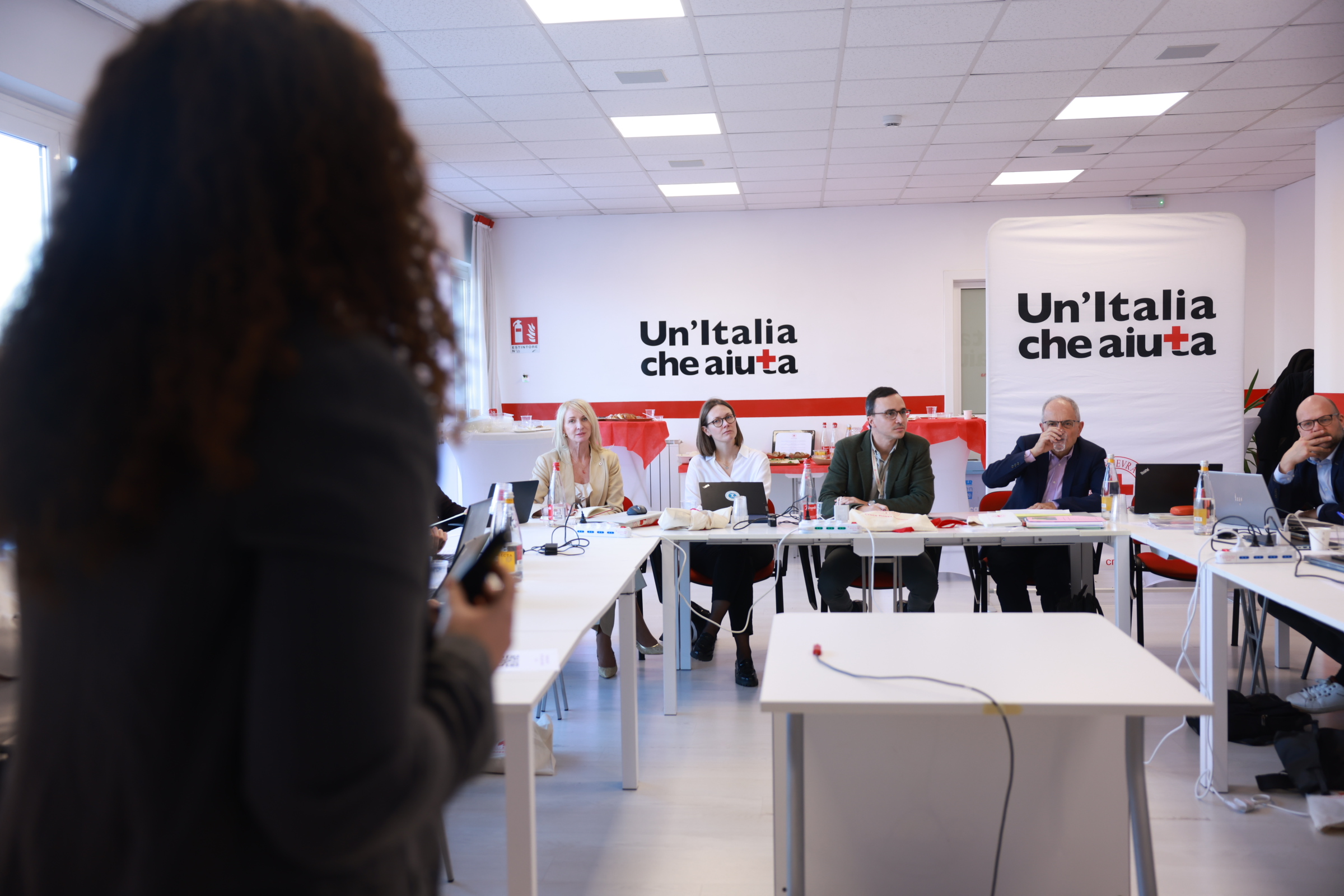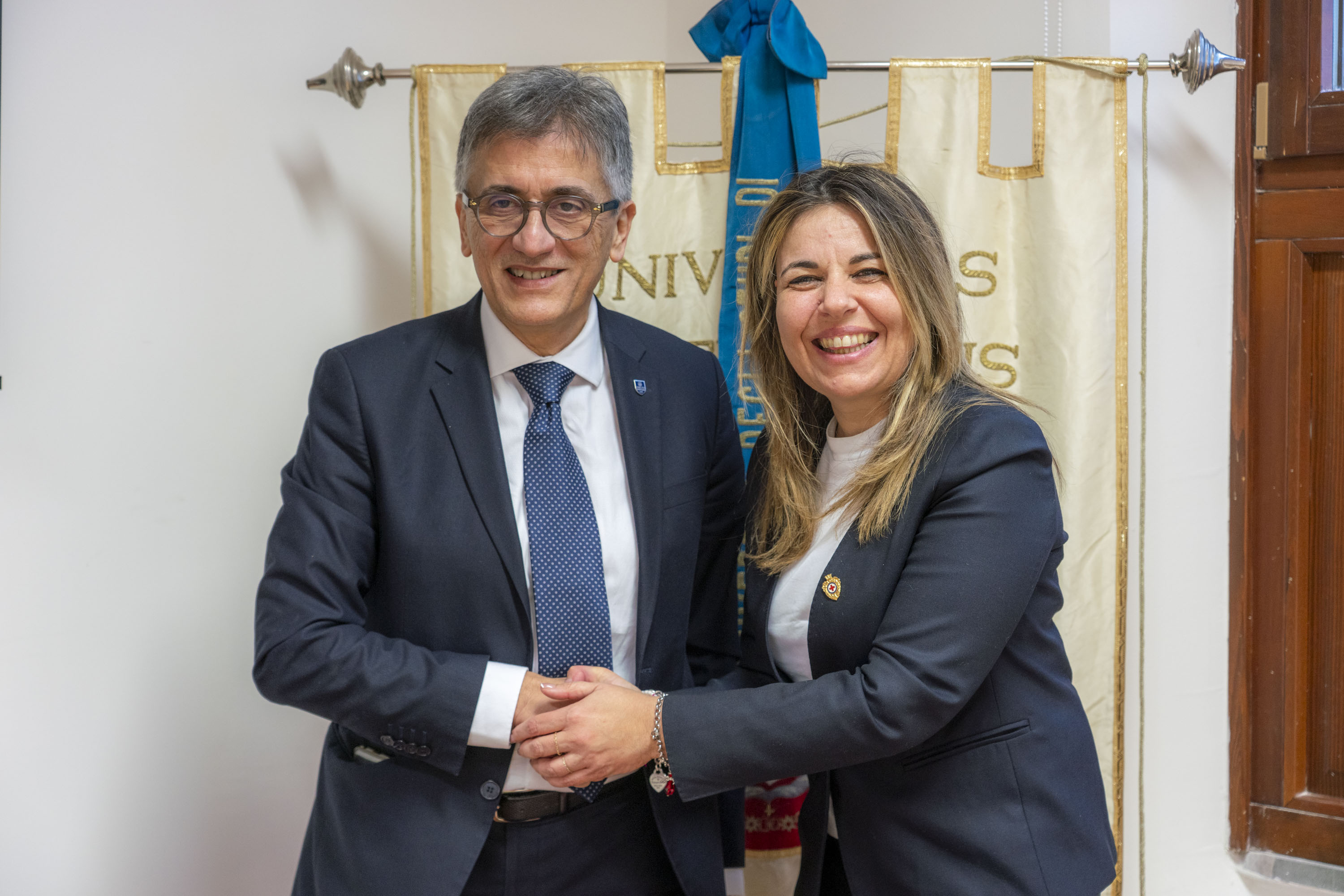Il Presidente Nazionale della CRI Francesco Rocca ha incontrato il Segretario Generale dell’ONU Ban Ki Moon al Palazzo di Vetro a New York per parlare della crisi nel Mediterraneo e di flussi migratori.

Francesco Rocca e Ban Ki Moon
“E’ necessario porre l’essere umano al centro. L’azione umanitaria è un imperativo”.
“No human being is illegal” è la scritta che campeggia sulla t-shirt che il Presidente della Croce Rossa Italiana e Vice Presidente della Federazione Internazionale della Croce Rossa e Mezzaluna Rossa Francesco Rocca ha voluto donare al Segretario Generale dell’ONU Ban Ki Moon nell’incontro avvenuto ieri mattina al Palazzo di Vetro a New York. Tema del vertice: la crisi nel Mediterraneo e i flussi migratori. Il Presidente Rocca, con quel dono che fa parte di un’importante campagna di comunicazione della CRI, ha voluto porre subito l’accento sull’imperativo umanitario e sulla necessità di porre al centro di ogni decisione l’essere umano. “Solo negli ultimi 18 mesi – ha detto Rocca – più di 5mila persone hanno perso la vita tentando di raggiungere l’Europa attraverso il Mediterraneo. Solo due giorni fa altri 10 migranti non ce l’hanno fatta. E oggi ancora assistiamo inerti alla morte di 40 persone. Notizie che sono passate quasi in sordina in confronto all’altro naufragio del 18 aprile scorso in cui persero la vita 800 migranti, ma che invece per noi sono motivo di shock e di rabbia. Perché per ogni naufragio, naufragano le nostre coscienze. Dall’inizio del 2015, più di 35mila migranti dal Nord Africa e dal Medio Oriente si sono imbarcati affrontando viaggi molto pericolosi pur di raggiungere le coste d’Europa. Sappiamo che il modo più appropriato per mitigare l’esodo dovrebbe essere quello di garantire condizioni di sicurezza e dignità direttamente in quei paesi da cui si scappa. Ma saremmo ipocriti se pensassimo che questo è ciò che deve essere fatto subito. Perché sappiamo anche che molti dei conflitti in essere, come quello in Siria, in Iraq e nel Sud Sudan sono lontani dall’essere risolti. Le persone continueranno a scappare da situazioni disperate e il non agire e reagire porteranno sicuramente a maggiore sofferenza. Abbiamo ascoltato le varie opzioni venute dall’Europa per fermare il traffico di esseri umani, ma non pensiamo che la soluzione sia di bombardare i barconi. Crediamo piuttosto che l’imperativo sia l’azione umanitaria. Dobbiamo smetterla di guardare al tema della sicurezza. I migranti che scappano da guerre e conflitti troveranno altre rotte. Non possiamo esibire cartelli con su scritto “Bring back our girls” e poi pretendere che una madre non scappi da una situazione di pericolo. Non possiamo pensare che il flusso di persone dal Corno d’Africa improvvisamente si fermi perché abbiamo bombardato i barconi. Chiediamo che le istituzioni pongano l’essere umano al centro e si smetta di etichettare queste persone come illegali. Nel summit a Bruxelles di due settimane fa circa i leader europei hanno preso alcune decisioni per noi insufficienti perché continuano ad avere uno scopo limitato e a non coprire l’intero Mediterraneo con il search and rescue così come veniva fatto dall’operazione mare Nostrum”.Il Presidente Rocca ha poi ricordato alcuni numeri relativi all’intervento della Croce Rossa nell’assistenza agli sbarchi. “Solo nei tre giorni appena trascorsi – ha detto – nelle Regioni del Sud, ma anche in Liguria, a La Spezia, la Croce Rossa Italiana ha garantito assistenza umanitaria a più di 7mila persone. Voglio ringraziare i nostri operatori e i nostri volontari per la loro presenza e il loro lavoro a ogni sbarco”. Il Segretario Generale ha voluto esprimere il suo apprezzamento per quanto la Croce Rossa sta facendo in favore delle migliaia di migranti che scappano da guerra e disperazione. Ha ascoltato le parole del Presidente Rocca condividendo le stesse preoccupazioni e sottolineando l’importanza dell’azione umanitaria in un contesto così difficile. Infine Rocca e Ban Ki Moon hanno affrontato il tema della Siria. Entrambi hanno voluto ricordare i volontari della Mezzaluna Rossa Siriana uccisi dall’inizio del conflitto, ringraziando la Federazione Internazionale e la Società Nazionale per il loro sforzo e il loro sacrificio continuo nel mettere a rischio la loro stessa vita pur di salvare quella di altri. Il discorso in inglese del Presidente Nazionale CRI Francesco Rocca“First of all I’d like to thank the SG Ban Ki Moon for his time and his words. This morning has been a very important moment for me and for migration’s issue because we have had the opportunity to talk about the same concerns and we agree that international community has to do more. I presented H.E the highest award of the Italian Red Cross. A t-shirt of a famous campaign of Italian Red Cross “No human being is illegal”. And from this message I want to start my statement today. Over 5,000 people are believed to have lost their lives attempting to reach Europe via the Mediterranean in the last 18 months. This makes these waters the most dangerous borders in the world. This should trigger action, commitment and support. Just two days ago, another 10 migrants did not make it. And today another 40 migrants are thought to have lost their lives. A piece of news that has made less noise in the media than the shipwreck of last 18 April, in which 400 people died, but which left us again shocked and angry. Because together with that capsized boat, our soul has sunk as well.Since the beginning of 2015, over 35,000 migrants from North Africa and the Middle East have embarked on the perilous journey across the Mediterranean Sea toward European shores, risking their lives on unsafe vessels.The most appropriate way to mitigate an exodus abroad is to ensure conditions of security and dignity at home. This should be at the heart of any strategy, but we must not be naive about its ability to produce instant results. Many of the world’s most violent conflicts, such as those in Syria, Iraq or South Sudan, are far from resolution. Some of the world’s most difficult political contexts, such as in the Horn of Africa, will not change because of aid. People will continue to flee desperate situations and inaction will only lead to more suffering. It will mean more harrowing tales of exploitation and abuse, culminating in the terrifying and deadly journey across the Mediterranean. So we listen at a lot of options from EU to stop this trafficking, but we’re not sure that the solution is bombing the vessels. We believe once again that the imperative has to be humanitarian action. We should stop looking just at the issue of security. People who are fleeing wars and conflicts will try others routes. We can close this route from Lybia, but as evidenced by the tragedy of Rhodes last days, there are other routes open to these desperate people who will continue to try to escape.For example, we cannot exhibit signs that read ‘Bring back our girls’ and then pretend that a mother has no right to run away from a dangerous situation and look for a better solution for her children. We cannot think that the flow from the Horn of Africa will magically stop just because we shot down and sunk vessels. We ask that there is an action of our institutions that put the human being in the center and stop labelling them as “illegal”.Two weeks ago, European leaders held a summit in Brussels and committed to increasing the search and rescue capacities of FRONTEX. While this is welcome, it is not enough. Its scope is limited and is not the same as a dedicated search and rescue operation which would cover the entire Mediterranean. The summit was just the beginning. We need to build on it to develop asylum policies which are forward-looking and firmly based on the principles of humanity, solidarity, and respect for human rights. This will mean legal protection to deter exploitation along the well-known migration routes. This in turn will require international collaboration between countries of origin, transit and destination. Over the past three days, in southern Italy’s regions of Sicily and Calabria, the Italian Red Cross has delivered humanitarian assistance to more than 7,000 people rescued by the Italian Coast Guard off the Libyan coasts. In Italy, Red Cross staff and volunteers are present in every port, providing first aid, food, drinking water, psychosocial and logistics support.For this reason, finally, I want to thank all the volunteers of the Mouvement of Red Cross and Red Crescent, but on my side, as President Of Italian Red Cross, I want to say thank you to my volunteers for their efforts and for their humanitarian approach to the migration’s issue”.



